Why We Should Use Kindness To Help Troubled Kids And Not Brute Authority
November 3, 2015
After a video of a teacher using fear and anger to discipline two disrespectful students made headlines, another teacher explained through personal experience why we should show kindness towards troubled kids instead of brute authority.
The video referenced is below, titled "Teacher OWNS disrespectful student":
This is what she wrote in response:
"I don't know how this is going to come out, so please know I have the best intentions in what I'm saying...
As a white woman who did a decade of work in one of the most diverse communities in the States, there is something to be said about people speaking the same language to each other. I'm not just talking about the actual words he's using, I'm talking about shared background and experience. This teacher is using the language, body posture, and attitude that probably is very close to those boys' fathers, grandfathers, uncles, what have you.
I don't know where this video is from, but as a white woman who worked for ten years in one of the most diverse communities in the United States, you can't walk into a classroom or a room full of black and Hispanic children and go hard. It simply does not work. Many of the children I've worked with, both as a social worker and a teacher, associate white people with their family members being taken to jail, themselves being put in foster care, and whatever experiences their parents may have shared with them.
I want to share this story because it's important for people to hear, I feel, and it's about people's ability to change. I was the case manager for a 14 year old who already had a rap sheet of petit theft and assault a mile long. Still wet behind the ears, I asked this boy, "Don't you care if you go to jail? Do you want to be locked up in a cage like a dog?" And this boy shrugged his shoulders and said, "I don't care."
I had to drive him to court an hour away at 6am, just him and me in the car alone together. He called me Stupid White Lady. At first he wouldn't talk to me at all. But I stood up in court every month and told the judge what I thought: Dante is a very smart boy. He's very kind to his sisters. He keeps his room very clean and is attentive about his chores. Dante struggles with his temper, but I can see that he is making efforts to control himself.
We'd get in the car and he'd cross his arms like always and stare out the window. But every hearing came, and I always focused on the positive. And one day he started talking to me. He started telling me stories about his abusive childhood. I found out he liked old school R&B songs; he found out I knew a lot more about a lot of different types of music than he thought.
He had been expelled from his school district and had to go to an alternative school, near the courthouse, also an hour away. No bus, so guess who had to drive him every morning at 5am? Yours truly.
And when he started to straighten up a bit, it was me who stood in front of the school board and said, "This young man deserves to go to your school. He has a talented mind. He is a talented athlete. And he has a generous, considerate spirit that would be a credit to your school." I said these words in front of him. The school board allowed him to re-enroll.
One day I asked him what he thought he'd like to do when he grew up. He told me that ever since he was 3 years old, he had wanted to be a firefighter. So I called up the fire station and had a firefighter come to Dante's group home. The firefighter gave him a hat and a pen from the fire school, let him wear the bunker gear, and we took photos.
This boy is now a 22-year-old man and he sends me - the Stupid White Lady - a card every year on Mother's Day. After he turned 16, he never committed another crime. He did go to fire school and is currently completing his EMT program. He doesn't do drugs, he doesn't even drink, he doesn't have a "baby momma", he's not running the streets, he's not fooling around with guns. He's just a good man. He talks to kids who are currently in foster care and is a motivational speaker.
This is not a story of me bragging on myself. I tell people this story because when I walked in and met Dante the first time, he was dressed like a Blood, hated me, didn't care about anything, had been expelled, and had no qualms about beating up anyone who crossed him - male, female, old, young, or otherwise. I was sure that the day he hit 18, I'd see him on the news in an orange jumpsuit.
This is a story about setting expectations. Goddammit, listen to me: If you treat someone like a dog, they will act like a dog. If you tell someone, outright or implicitly, that you think they're yet another ne'er-do-well young black gang-banging fool, they will be that. I refused to be anything but positive with Dante. It would be easy to say that he rose to my expectations, but I don't believe that. He rose to his own expectations; I just helped him realize what they were. I knew he could be better. Deep down, he knew he could be better. But he needed someone, for once, to say, "I see you. I see you in there. Come out."
I just wanted to share that with you because this bull***t about going hard and body slamming disrespectful kids to the ground is just that: bull***t. I've worked with well over a thousand rough kids of every color, every walk of life. White trash kids from trailers. Black kids from the projects. Every kind of immigrant you can think of. Every mental health disorder you can think of. Going hard is not the answer; it has literally never worked for me.
What these kids need is the voice of a good and loving mother or father: it is stern, it demands respect, but it is not hateful. It is not violent. The voice of a person in love with their child who says they are disappointed will bring some of the roughest children to tears. Does the story always end like Dante's? Hell no. But you're the adult here; you set the tone. Whether they follow or not is their choice, but god help you whatever you do, you don't treat them like animals and then expect them to be angels.
Choose kindness, not brute authority. Ten years working with abused children taught me this."
Credit: considerthesnail.
Do you agree that compassion, love and trust is the best way to get through to troubled kids? Let us know your thoughts.
 Dogs Are Forced To Wear The Things They Steal — And It’s Hilarious
Dogs Are Forced To Wear The Things They Steal — And It’s Hilarious
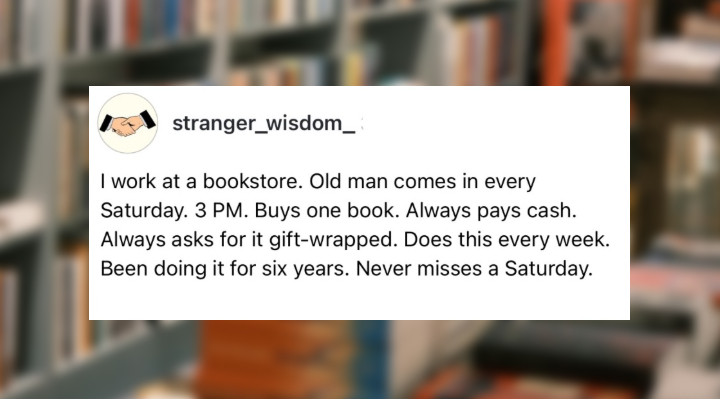 An Old Man Kept Visiting A Bookstore Every Saturday—The Reason Has People In Tears
An Old Man Kept Visiting A Bookstore Every Saturday—The Reason Has People In Tears
 He Says His Sister's Dog Hates Him — And The Pictures Don't Lie
He Says His Sister's Dog Hates Him — And The Pictures Don't Lie
 Someone Put A Pinecone In Their Shower… And People Are Fascinated By What Happened
Someone Put A Pinecone In Their Shower… And People Are Fascinated By What Happened
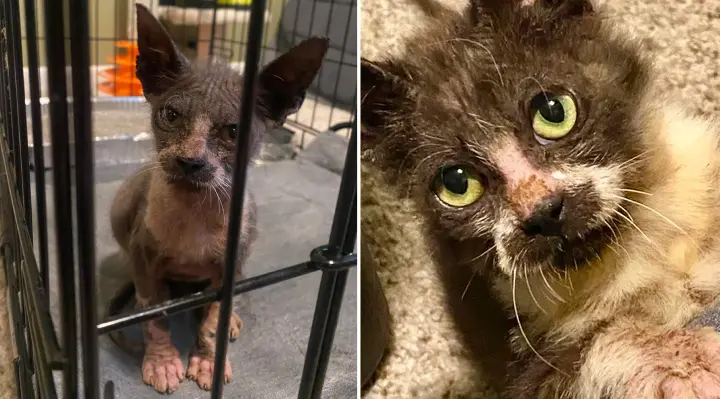 He Showed Up Looking Like A Hairless Cat… Months Later, No One Can Believe The Transformation
He Showed Up Looking Like A Hairless Cat… Months Later, No One Can Believe The Transformation
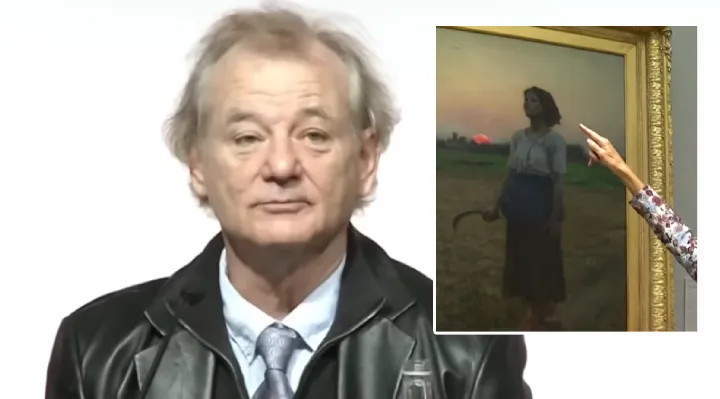 Bill Murray Says This Painting 'Saved His Life' — And It Still Inspires Visitors Today
Bill Murray Says This Painting 'Saved His Life' — And It Still Inspires Visitors Today
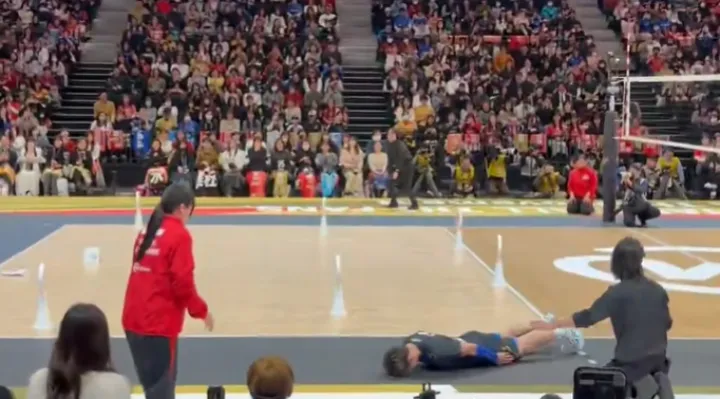 This Apology During A Volleyball Game Is The Best Apology You Will See Today
This Apology During A Volleyball Game Is The Best Apology You Will See Today
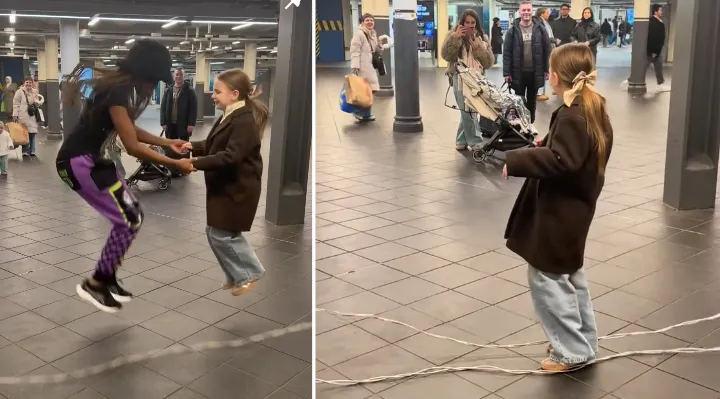 Strangers Teach A Young Girl To Jump Rope And Stop Her From Giving Up
Strangers Teach A Young Girl To Jump Rope And Stop Her From Giving Up
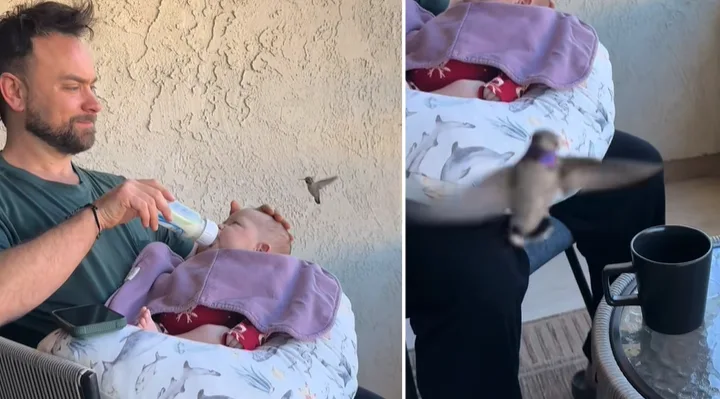 Mom Filming Newborn Catches A Magical Surprise Visitor
Mom Filming Newborn Catches A Magical Surprise Visitor
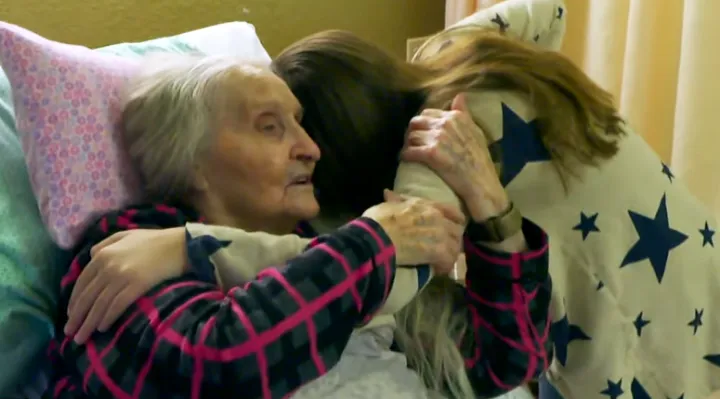 Little Girl Asks Nursing Home Residents One Question —Then Starts Granting Their Wishes
Little Girl Asks Nursing Home Residents One Question —Then Starts Granting Their Wishes
 Watch This Clever Crow Solve A Cookie Problem In Real Time
Watch This Clever Crow Solve A Cookie Problem In Real Time
